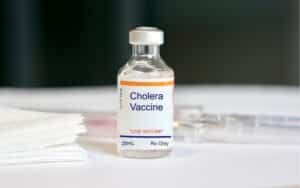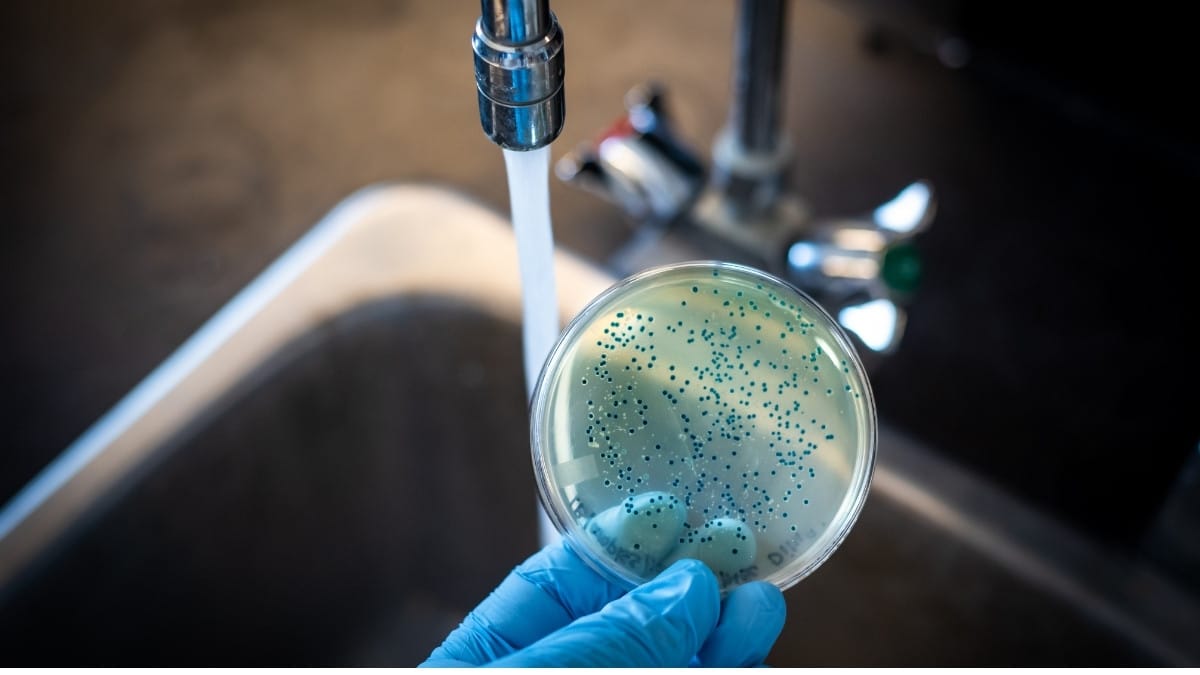Cholera is a contaminated disease that occurs from food or dirty water. Cholera is a dreadful epidemic contagious disease. It is identified by watery diarrhoea, utmost deprivation of fluid and electrolytes from the body, and acute dehydration reaction. It can be lethal.
Vibrio cholera is the bacteria responsible for cholera disease occurring in the first place and is the major cause of the condition.
There are still parts of the world that are not developed and are struggling for basic amenities like sewage systems, clean drinking water, drainage facilities or waste management processes.
Cholera sufferers’ faeces contains significant concentrations of the dangerous Vibrio cholera bacteria, which can infect others if swallowed. When bacteria get on food or into the water, this can happen.
Vibrio cholera causes cholera, an intestinal infection. The condition is characterized by copious secretory diarrhoea. Cholera is a disease that can be endemic, epidemic, or pandemic in nature.
Despite substantial improvements in research, the illness continues to pose a barrier to modern medicine. Severe cholera can induce dehydration reaction and death within hours of commencement, even if the disease is asymptomatic or moderate.
Cholera is the most common disease since the time of 1800s and with the onset of modernization, the cases of cholera decreased in the developed nations. Despite the availability of modern facilities, there is still a lack of access to proper sanitation and clean drinking water for adequate hygiene to follow.
It affects 3-5 million people worldwide according to WHO. It’s also responsible for a plethora of deaths stating approximately 100,000 last year.
Areas that are more prone to cholera are Africa, South Asia, and Latin America. This occurs in places of war, famine, poor sanitation, or crowding areas. An infection in the intestine is developed that gets worse with severe symptoms.
- Metronidazole(Flagyl)
- Ivermectin(Ivecop)
- Diethylcarbamazine(Banocide Forte)
Cholera is found in coastal waters seafood, shellfish, brackish rivers, dirty water, faeces that gets mixed with the items, or raw materials that are eatable. Cholera prevention should immediately be enacted.
Symptoms of Cholera
An infection with cholera symptoms can be mild and cause no symptoms. However, 12 hours to five days after consuming the germs, roughly 10% of infected persons develop severe symptoms. These signs and symptoms include:
- Diarrhoea is a condition in which the faeces is very watery.
- A strong desire to drink.
- Urine concentrations are lower (pee).
- Muscle spasms
- Irritability or restlessness.
- Vomiting.
- Lethargic or exhaustion
- Kidney failure
- Shock or coma
- Death
If you experience any cholera symptoms, get medical attention right once. Mild symptoms may go away in a few days on their own. However, dehydration reactions can be fatal in a matter of minutes. Treatment can save your life if you get it early enough.
What are some of the issues that cholera symptoms can cause?
Cholera symptoms cause significant amounts of essential chemicals to be lost through diarrhoea and vomiting:
- Electrolytes.
- Fluids.
- Sodium.
- Potassium.
When your body lacks those nutrients, you get dehydrated and may develop:
- Mucous membranes that are dry (such as in the eyes, nose, and mouth).
- The heart rate is high.
- Hypokalemia is a condition in which the body’s (low potassium levels in the blood).
- Hypotension is a condition in which blood pressure (low blood pressure).
- Skin loses its natural stretchiness.
Treatment of Cholera
How do you know if you have cholera? A healthcare provider will need a sample of your stool to test for cholera. Pooping into a collection cup or bag is common. A healthcare provider may occasionally introduce a swab into your rectum (opening where poop comes out).
The sample is submitted to a lab, where experts will examine it under a microscope to determine whether it contains the bacterium V. cholera.
A “dipstick” gadget that can quickly test a faeces sample is available in some locations where cholera is more prevalent.
Preventing or correcting dehydration reaction is the most critical aspect of cholera treatment. Anyone who has cholera should replace the fluids and salts they’ve lost right away. Prescriptions from a healthcare professional may include:
- Oral rehydration solution (ORS): You may need to consume a premade mix of sugar, salts, and water in significant amounts.
- Intravenous fluids: A healthcare provider may use a needle to inject fluids directly into your veins if you have a severe case of dehydration.
- Other treatments that may be used include Antibiotics. V. cholera germs normally vanish from the body within two weeks in youngsters under the age of five.
Cholera Prevention
People who do not reside in or visit locations where sanitation is inadequate to have a low risk of contracting cholera.
However, if you live in an area where cholera is a problem, you can use the following techniques to cholera prevention:
- Tap water, water fountains, and ice cubes should all be avoided. This warning applies to the water you drink as well as the water you use to wash dishes, cook, and brush your teeth.
- Seafood that is uncooked or undercooked should not be consumed.
- Only drink water that has been bottled, canned, boiled, or chemically processed. Also, avoid drinking from a broken-seal bottle or can.
- Prepackaged foods should be consumed. Alternatively, ensure that all other items are freshly prepared and served hot.
- Consider cleaning your water by doing the following: Bring it to a boil for at least one minute. To each litre of water, add half an iodine tablet or two drops of household bleach. Alternatively, chlorine pills can be used.
- Fruits and vegetables should be washed in clean water.
- Hands should be washed with soap and water before handling and eating food, as well as after using the restroom. If you don’t have access to clean water or soap, use a hand sanitiser that has at least 60% alcohol.
Vaccine Dilemma

Cholera is one of the deadliest diseases in the world. One cholera vaccine (Vaxchora) has been licensed by the US Food and Drug Administration (FDA).
It’s for anyone aged 18 to 64 who plans to go to cholera-infected areas. However, because most travellers avoid cholera-infected areas, the vaccine is rarely advised.
There are two alternative cholera treatment vaccines on the market, but none have been licensed in the United States.
Vaccines aren’t 100 per cent effective, so take precautions before travelling. Take caution while handling food and water, and wash your hands frequently.
Bottom Line
Cholera symptoms may clear up on their own in a matter of days. However, if you are experiencing severe symptoms and are becoming dehydrated, you should seek medical help.
Fluids must be replaced as soon as possible. Cholera prevention is necessary.
If you reside in a cholera-infected area or plan to visit one, be cautious about the water you drink. Hands should be washed and food should be carefully prepared.
The following items may be useful: bottled or boiled water, chlorine tablets, and iodine tablets, packed food.
If you have severe diarrhoea caused by cholera or another illness, see a doctor every once. To avoid dehydration reactions, you must replenish fluids and electrolytes. This complication can result in major health issues, including death.
When referencing outside resources, GoodrxMedicine always provides full citations. To learn more about the measures we use to maintain the quality of our content, please review our Content Information Policy.











